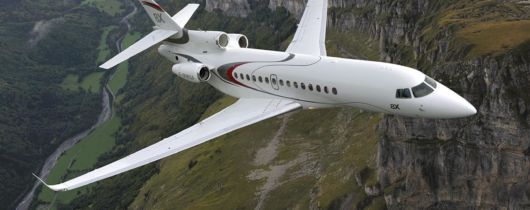
For prospective buyers, deciding how you intend to manage and operate your aircraft is every bit as important as whether you decide to purchase new or pre-owned and which aircraft make or model you choose.
While some aircraft owners may decide to create their own flight department, this can be a major undertaking, one that requires considerable resources and is therefore more common amongst corporate entities than individual owners. For the most part, high-net-worth individuals who acquire an aircraft for business or personal use choose to retain the service of a third-party private aircraft management company — that is, a company that specializes in overseeing the day-to-day maintenance and operations of an aircraft and essentially functions as a private flight department.
In this article, we’ll take a deep dive into aircraft management companies, including the types of services they provide, the benefits to working with such a company and how to identify one that meets your needs.
The 3 Primary Types of Aircraft Management Companies
There are three primary types of private aircraft management companies, each of which specializes in a different area and, as such, may provide different services.
These are:
- Regional Organizations: This category consists of smaller, usually regionally-based aircraft management companies that consist of a few private aviation industry professionals dedicated to supporting a limited number of aircraft on behalf of a small group of owners.
These companies may not offer the same array of services, such as maintenance and accounting, as mid-size or national aircraft management companies. Those that do offer comparable services will typically outsource that work because, based on their size, they lack the in-house resources needed to support it.
- Mid-sized Organizations: This type of aircraft management company is typically formed by mid-sized companies to complement their existing Fixed Base Operator (FBO) or aircraft sales business.
Mid-sized management companies are generally able to offer a wider array of services than their regional counterparts without having to outsource, which grants aircraft owners more control. With that said, they may still be unable to offer the full spectrum of services a national organization can provide. Depending on the company, a mid-sized organization will either staff its own pilots or pass that responsibility onto the aircraft owner.
- National Organizations: Companies in this category are either a division of a large public corporation or are privately held and tend to be nationally known.
Given their size, national organizations tend to have considerable resources at their disposal and are therefore able to offer a vast array of in-house services, including maintenance, accounting, charter operations and pilot and crew staffing. Many private aircraft management companies in this category are also able to personalize their services to accommodate each owner’s needs and will assign a representative to each client’s account to serve as their primary point of contact.
There are even variations within each of these categories — for example, two mid-sized management companies may have access to different resources and offer a completely different set of services — so it’s important to do additional research to ensure that you find the one capable of meeting your requirements.
When evaluating aircraft management companies, take into account their safety culture, look into their accident and incident history and learn about their operational experience and reputation in the industry.
What Services Do Aircraft Management Companies Offer?
Although each company provides a ranges of aircraft management services, when partnering with a full-service management company, you can generally expect it to:
- Schedule flights
- Provide aircraft security and concierge services
- Manage or perform all maintenance, repairs and inspections
- Ensure International Civil Aviation Organization (ICAO) and Federal Aviation Administration (FAA) compliance
- Negotiate or provide aircraft insurance
- Arrange hangar space
- Hire and train pilots and other flight crew
- Handle accounting and monthly statements and provide financial analyses
- Secure discounts on parts, labor and fuel
- Oversee charter management to third parties
- Offer alternative flight arrangements (if your aircraft is unavailable)
Cost Benefits to Working with an Aircraft Management Company
Owning and operating a private aircraft is, as one would expect, a costly endeavor. Beyond the initial upfront investment and the general costs of maintenance and upkeep, aircraft owners must also account for flight crew salaries, hangar fees, insurance, fuel costs and more.
A private aircraft management company will not only coordinate the many moving parts and pieces behind operating your aircraft, but also find ways to help you offset the cost of ownership. For example, your management company may be able to lower your fuel costs by securing contract rates, negotiate the price of inspections and parts on your behalf and even negotiate training prices for pilots and flight crew.
A private jet management company can also help you turn aircraft ownership into a revenue-generating opportunity. Some aircraft management companies will offer to charter your aircraft on your behalf, acting as the charter operator, so you can recoup costs when you aren’t actively using your plane.
Reducing Operational Costs Through Chartering
As noted, making your private aircraft available for charter when you aren’t using it can help reduce your total cost of ownership (though don’t go into it expecting to break even), as well as potentially make you a more attractive client to some private jet management companies.
Finding the Ideal Management Company Based on Your Goals
Before you begin evaluating prospective aircraft management companies, take some time to clarify your goals as a private aircraft owner, as these will serve as selection criteria in your search for the ideal management company partner.
Ask yourself the following:
- What are my travel needs?
- How many hours do I anticipate flying each year?
- Do I typically pre-plan my trips, or do they tend to be spontaneous?
- Are my destinations primarily domestic, international or a combination of the two?
- For my domestic flights, do they tend to be regional or cross-country?
- Where will my aircraft be based?
- What services do I require from a management company?
- Do I want them to handle everything for me, or do I plan to take responsibility for certain tasks, such as hiring a pilot, handling taxes or finding hangar space?
- Is it important that my private jet management company have experience managing and operating my particular make and model of aircraft?
- Do I require immediate support for all requests, or is a 24-hour response time acceptable?
- How often do I want to communicate with my aircraft management company?
- What’s my preferred contact method and communication style?
- How hands-on do I want to be in the day-to-day management and operation of my aircraft?
- Would I prefer that my management company handle everything on my behalf, or do I want to be more involved and have direct contact with crew, maintenance and administrative personnel?
- Do I want to make my aircraft available for charter when I’m not flying?
- If I plan to make my aircraft available for charter, what are my revenue expectations and trip approval requirements?
It’s important to be honest in your self-assessment, as this will increase your likelihood of finding an aircraft management company that aligns closely with your goals and expectations.
Questions to Ask When Evaluating Aircraft Management Companies
Once you’ve completed your self-assessment, you’re ready to start your search for a private aircraft management company in earnest. When evaluating different companies, be sure to ask the following:
- How long has your company been in business?
- Which aircraft makes and models do you have experience managing?
- Does your company have experience managing my particular make and model of aircraft?
- Who are your day-to-day operation managers, and what is their background and experience in the private aviation industry?
- Does your company base all of the aircraft it manages at one central location, or can I choose where to base my aircraft?
- What are your internal safety standards?
- Is your organization audited by an independent third-party such as Argus, Wyvern or the Air Charter Safety Foundation?
- How long has your organization been certified?
- What programs and services does your company offer?
- Is your company full-service — that is, does it offer services beyond maintenance, repairs, hangar rental and inspections?
- What are your company’s crew hiring and training standards?
- Do you outsource maintenance, or do you have your own team of in-house maintenance professionals?
- If the former, how do ensure that quality standards are met and that all work is FAA-compliant?
- How will your company ensure that my travel schedule isn’t disrupted in the event that my aircraft requires service?
- Do you offer fleet discounts on insurance, fuel, training and maintenance?
- Does your company offer charter management services?
- Do you have your own government-issued Federal Aviation Regulation Part 135 charter certificate?
- What are your company’s plans for revenue generation and charter demand?
- How will your company ensure that it meets my travel needs not just now, but in the long term?
Find the Perfect Management Company Match with Essex Aviation
With so many reputable aircraft management companies in the market, it can be challenging to find the time to evaluate all of the options available to you. And, if you’re like most private aircraft owners, you may not have the necessary industry expertise to determine which organization is the ideal fit.
That’s where Essex Aviation comes in. Our team of consultants brings decades of industry experience to the table — including prior experience working with many of the leading management companies — which we can use to help you identify the best option based on your travel needs, goals and preferences. We encourage you to schedule a free consultation with our team before starting your search for an aircraft management company to see how Essex Aviation can be of service to you.







